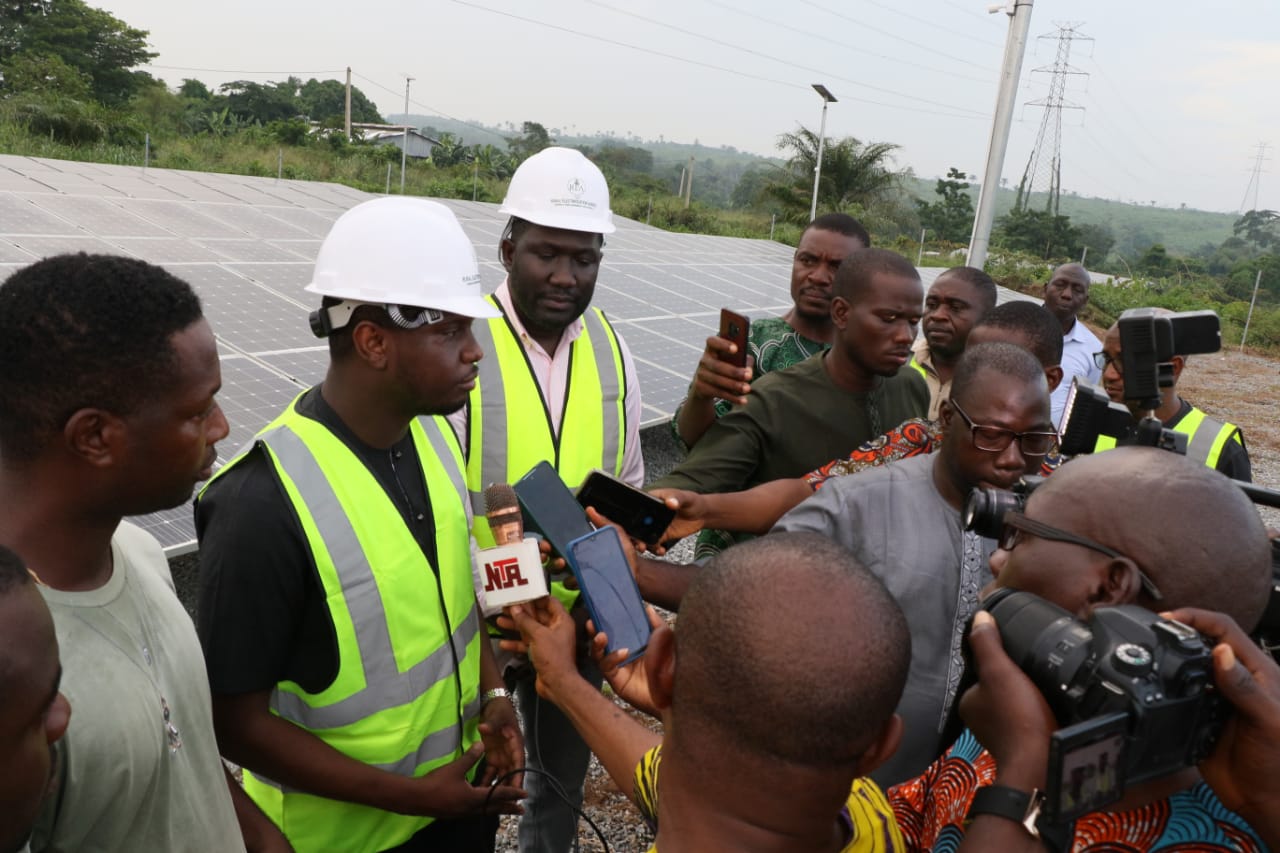
The Rural Electrification Agency, under the authority of the Federal Government, has successfully implemented a solar-powered mini-grid system with a capacity of 100 kilowatts to benefit farmers residing in Eriwe farm village, situated in the Odogbolu Local Government area of Ogun State.
The expansive farm spans over 156 hectares of land and is owned by the Ijebu Development Initiative on Poverty Reduction, headed by the esteemed Awujale of Ijebuland, Oba Kayode Adetona.
During a media interview conducted after the site visit, Ahmad Salihijo Ahmad, the Managing Director of the Rural Electrification Agency (REA), emphasized that the installation of the solar-powered mini-grid system at the farm was in line with REA’s poverty alleviation policies, particularly focusing on the agricultural sector.
Ahmad, who is also a passionate advocate for renewable energy, explained that the farm was selected as the designated project for the South West geopolitical zone. By implementing this initiative, the project aims to reduce costs and dependence on fuel for operating the pumping machines used by the fish farmers, especially considering the removal of fuel subsidies.
He further elaborated, stating, “What we have witnessed here is a 100-kilowatt system that provides power to the agricultural facilities within the Ijebu Development Community Programme, which is dedicated to poverty alleviation.”
“Beyond the mini-grid being powered, this inspection is to see what is the best use of the power that we have provided here.
“The project is part of our pragmatic approach to budgeting that we have been doing in the last couple of years where we are looking at alleviation of poverty especially around the agricultural sector. We have one in each of the geopolitical zones.
“This is 100 kilowatts and I am hearing that it is only powering 10 per cent
and so essentially, it means we are talking about one megawatt. In terms of the payment, it is not going to be free because this is something the government has done as a proof of concept so that we can create that environment for private developers to expand upon it.”
Mr Ahmad emphasized that the subscription fee for accessing the solar-powered mini-grid system would be determined through collaboration with the stakeholders, ensuring that it remains affordable for the farmers.
Speaking on behalf of the farmers in Eriwe Farm Village, Quadri Oriyomi, the President of the Farmer Aquaculture Union, expressed his appreciation for the project, highlighting that it would bring much-needed relief to the farmers. He explained that since the removal of subsidies, the N500 pump price has made it challenging for farmers to operate their pumping machines, hindering their productivity.
He said “The project can only cover 10 percent because the land here is over 156 hectares where we have over 500 farmers.
“We have about 42 groups and in each group, we have over 30 people. They said is just like a sample to test-run how it is going to go around so that everybody will benefit.
“By the time you calculate it, this will just take care of 40 ponds, I mean 40 pumping machines out of over 200 pumping machines. We have agreed to subscribe to solar power with a minimum price that is not going to affect the farmers.
“We appeal that they expand solar power to make other farmers benefit so that it won’t lead to beefing. For instance, some farmers will be enjoying solar while others will be using fuel, which may cause a crisis.”

